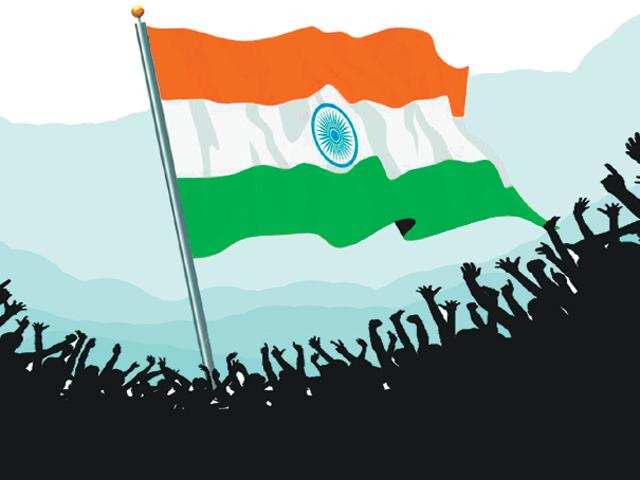
Jeff Bezos. Masayoshi Son. Jack Ma. Mukesh Ambani.
Some of the world's richest people also happen to be combatants in the expensive war over the future of technology in India.
Bezos's Amazon.com Inc. and Indian rival Snapdeal, backed by Son, are spending billions of dollars to build e-commerce in India. Alibaba founder Ma has splurged on investments aimed at popularizing digital payments. Ambani's Reliance Industries Ltd. is on track to spend about $30 billion (gulp!) to shake up India's stodgy mobile internet service. Google, Tencent, Uber, Xiaomi, Apple and Facebook are also betting on growth in India.
It's easy to see why India and its 1.3 billion people are the No. 1 prize in technology. About one-quarter of Indians used the internet in 2015, according to the most recently available data from the World Bank, but the percentage is expected to explode in coming years. And compared with China -- a quick-to-digitize country that was quicksand for non-Chinese tech companies -- India has been relatively open to companies from outside the country.
The battle for supremacy is great for Indians, who will get better and cheaper technologies tailored to their needs. But gobs of money are being spent now for what is a very, very long game with an uncertain toll on both winners and losers.
Apple CEO Tim Cook has said India is seven to 10 years behind China in technology market potential, and other executives echo that view. Building the future involves many, often low-tech, struggles like dealing with bad and clogged roads to deliver online orders, poor internet access for customers and dinged reputations from fears that foreign companies like Facebook are trying to monopolize internet use in the country.
But a couple of recent actions -- one by the government, the other by a billionaire -- have been important developments in India's tech market. They show how individual actions can be unexpected sparks for technology use and the tech business in India.
Spending by India's Richest Person on a New Mobile Network: About $30 billion
First, the decision last year by India's government to ban the vast majority of cash in circulation did more for adoption of digital payments than anything a rich techie could have done. That move helped payments services like Paytm, backed by Alibaba Group Holding Ltd., but it also gives a leg up to on-demand ride companies, e-commerce and other services that depend on a shift toward electronic payments in a country with low credit card penetration. (RBI on Thursday also cleared Amazon India to start its own digital payments service.)
The second jolt was the launch last fall by Ambani, India's richest person, of a national mobile network that offered free cellphone calls and cheap, fast mobile web surfing. Competitors complained, but they quickly cut customers' bills, too, and gave them more data. Ambani's Jio mobile network signed up about 100 million customers. That is nearly as many customers on contracts with Verizon, the largest wireless company in the U.S. by that measure. And Verizon didn't get those customers in six months, as Jio did.
Sundar Pichai, CEO of Alphabet Inc's Google, has said the biggest barrier to technology development in India is affordable, available and high-quality internet access, which like in China is mostly done on mobile phones. Ambani has helped bring down that internet access barrier.
Technology development in India will be unpredictable and halting, but the potential payoff is too alluring to ignore. Expect the billionaire battle in India to continue.
Posted by: YR Raghavan .
__,_._,___
No comments:
Post a Comment
Note: only a member of this blog may post a comment.